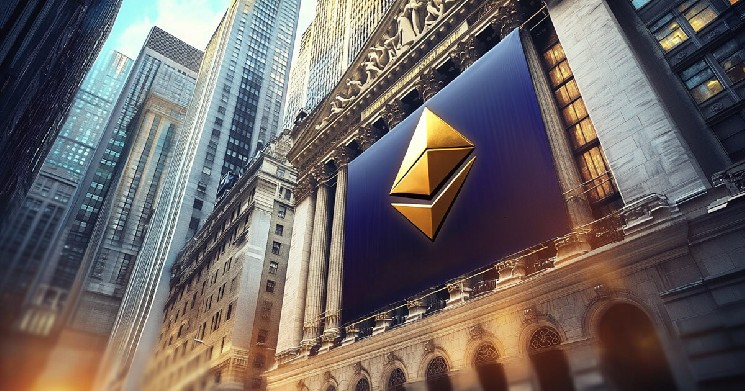US-traded spot Ethereum ETFs amass $2 billion in inflows

Spot Ethereum (ETH) exchange-traded funds (ETFs) inflows surpassed $2 billion in nearly four weeks, when excluding Grayscale’s ETHE outflows of nearly $2.5 billion, based on Farside Investors’ data.
ETF Store CEO v highlighted that if this cumulative value is considered under one ETF, it would equate to the fourth-largest ETF launch to date.
The three other ETF launches besting the cumulative Ethereum ETFs are all spot Bitcoin (BTC) ETFs: BlackRock’s IBIT, Fidelity’s FBTC, and ARK 21Shares’ ARKB.
Geraci added:
“On its own, iShares Ethereum ETF = top 7 ETF launch.”
Bloomberg senior ETF analyst Eric Balchunas shared that the ETFs’ year-to-date flows have reached $911 billion globally. The $17 billion in net flows registered by US-traded spot crypto ETFs represent nearly 2% of the total global flows.
Notably, IBIT is the third-largest ETF by inflows, inching closer to $20.5 billion. FBTC also ranks among the largest funds, with nearly $10 billion in inflows.
Ethereum ETFs lagging
Despite breaching the $2 billion mark in cumulative inflows, spot Ethereum ETFs’ performance is still lagging behind that of their Bitcoin counterparts.
Bitfinex analysts attribute this to Ethereum’s overall weak performance over the past few weeks, with the crypto down 40% in the past month.
Jump Crypto, Wintermute, and Flow Traders have sold 130,000 ETH cumulatively since the Ethereum ETFs were launched. Additionally, the macroeconomic landscape was recently shaken by the sharp interest rate hike in Japan, which dampened the risk appetite in the market.
Aurelie Barthere, Principal Research Analyst at Nansen, also shared with CryptoSlate that the crypto market’s sell-off in March resulted in significant realized losses, especially for traders engaged in multiple crypto narratives.
Furthermore, a second sell-off between July and August happened and shone a light on a growing correlation with equities. This has further pressured Ether amid solid but slowing US growth and stretched valuations in traditional risk assets like US equities.




 Bitcoin
Bitcoin  Ethereum
Ethereum  Tether
Tether  USDC
USDC  Dogecoin
Dogecoin  TRON
TRON  Cardano
Cardano  LEO Token
LEO Token  Chainlink
Chainlink  Hedera
Hedera  Stellar
Stellar  Bitcoin Cash
Bitcoin Cash  Litecoin
Litecoin  Monero
Monero  Dai
Dai  OKB
OKB  Gate
Gate  Cronos
Cronos  Ethereum Classic
Ethereum Classic  Cosmos Hub
Cosmos Hub  VeChain
VeChain  Algorand
Algorand  KuCoin
KuCoin  Maker
Maker  Stacks
Stacks  Tether Gold
Tether Gold  Theta Network
Theta Network  IOTA
IOTA  Tezos
Tezos  Zcash
Zcash  TrueUSD
TrueUSD  NEO
NEO  Polygon
Polygon  Dash
Dash  Decred
Decred  Synthetix Network
Synthetix Network  Zilliqa
Zilliqa  Qtum
Qtum  0x Protocol
0x Protocol  Basic Attention
Basic Attention  DigiByte
DigiByte  Siacoin
Siacoin  Holo
Holo  Ravencoin
Ravencoin  NEM
NEM  Enjin Coin
Enjin Coin  Ontology
Ontology  Nano
Nano  Waves
Waves  Hive
Hive  Status
Status  Lisk
Lisk  Pax Dollar
Pax Dollar  Steem
Steem  Huobi
Huobi  BUSD
BUSD  Numeraire
Numeraire  OMG Network
OMG Network  Bitcoin Gold
Bitcoin Gold  Ren
Ren  Augur
Augur  Bitcoin Diamond
Bitcoin Diamond  HUSD
HUSD